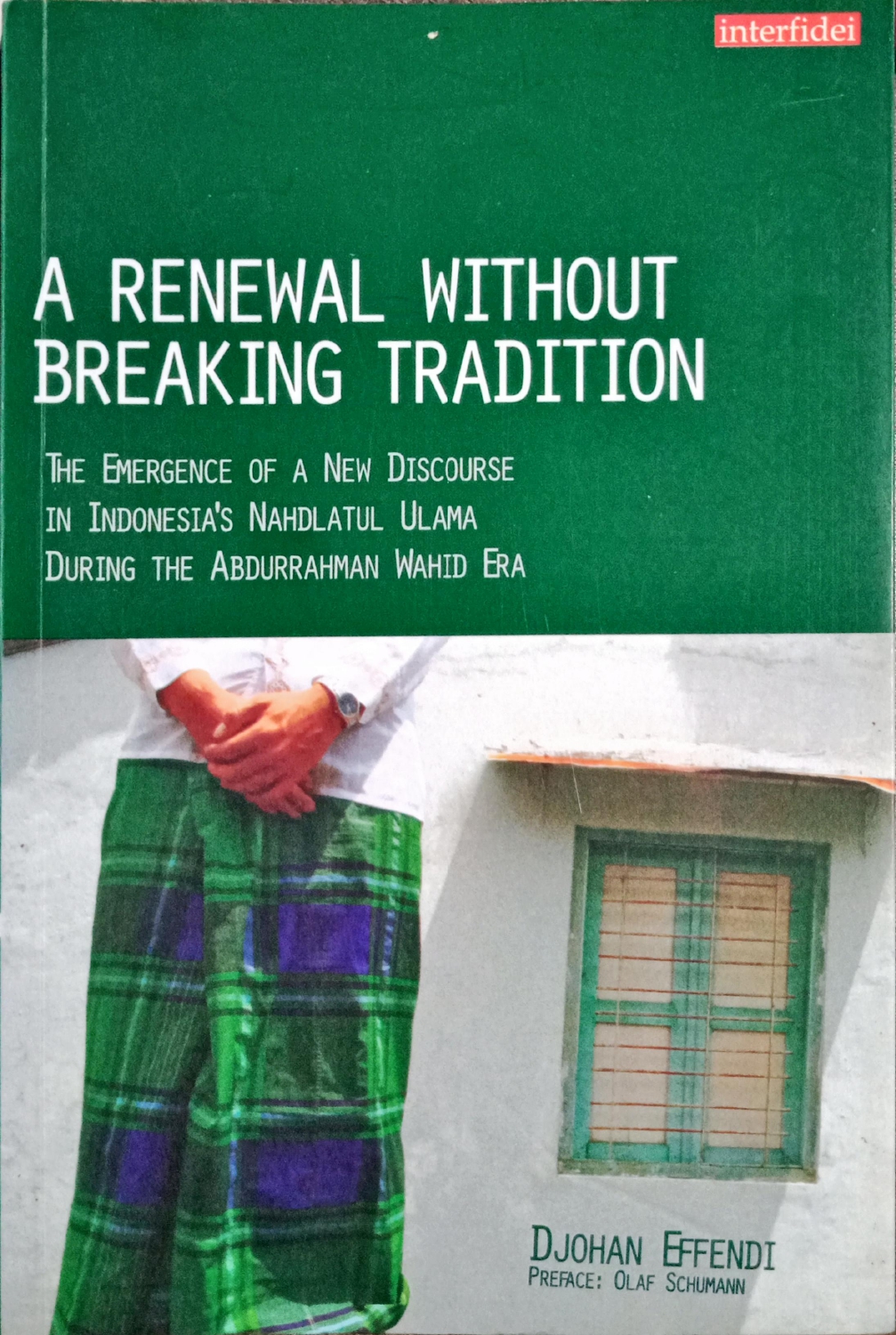| Judul |
|---|
| A Renewal without Breaking Tradition |
| Penulis |
| Djohan Effendi |
| Penerbit |
| Dian/Interfidei Institute, Yogyakarta, August 2008 (cetakan ke-1) |
| Kategori |
| 4 Tentang Gus Dur, Bahasa Inggris, Buku Tentang Gus Dur, Karya Tulis Tentang Gus Dur, Thesis |
| Arsip Tahun |
| 2008 |
Judul Tulisan
Thesis Abstract
Acknowledgments
Notes regarding terminology and convention
Glossary
Introduction
Preface
Contents
Chapter One : Traditional Islam and its Institutionalization in Indonesia
- The Formulation od Islamic Teaching
- The Emergence of Mazhabiyah Traditionalism
- Ahl al-Sunnah wal-Jama’ah
- Traditional Islam in Indonesia
- The Role of Pesantren in Maintaining Traditional Islam
- Ahlus Sunnah wal-Jama’ah in Indonesian Context
Chapter Two : Islamic Resurgence and its Ideological Orientation in Indonesian Perspective
- Historical Background
- The Orientation of Muslim Movements
- The Salafiyah Religious Movement
- The Salafiyah Ulama Movement
- Salafiyah Organizations
- The Political Movement
Chapter Three : The Awakening of Traditional Muslims in Indonesia
- The Awakening of The Traditionalists
- The Emergence of the Kaum Tua Movement
- The Arising of New Consciousness in Parahyangan
- The Awakening of The Traditionalist Ulama
- NU : The Traditionalist Wing Amongst The Indonesian People
- NU : The Organisation and Community
- NU : Aswaja, Pesantren and Kiai
- NU : Tradition and Modernity
- A Renewal without Breaking Tradition
Chapter Four : NU Tajdid – Renewal in the Perspective of Mazhabiyyah Traditionalism
- Tajdid in the Perspective of NU’s Development
- Ijtihad and Taqlid in A New Discourse
- NU. Mazhab and Adherence to Mazhab
- Concluding Remarks
Chapter Five : Halakah – A Kiai’s Forum for the New Discourse towards the Contextualization of Socio-Religious Thought
- Syuriyah : Institution of the Supremacy of Ulama
- Bahtsu Masail : The Forum for Decreeing Fatwa
- Kitab Kuning : The Standard Reference of Religious Fatwa
- The Emergence of Critical Voices
- A Widening of the Agenda
- Searching for a New Method
Chapter Six : Fikih Siyasah – A New Islamic Discourse on the Path of Democracy
- Social Injustice and the Irrelevancy of Religious Legal Views
- Public Welfare : the Aims of Syari’ah
- The Public Interest in The Perspective of NU
- Human Rights in The Perspective of The Islamic Concept of Maslahah
Chapter Seven : Fikih Perempuan – A New Approach to Promote Gender Consciousness Amongst Muslim Women
- Faqhun-Nisa : The Emergence of Gender Consciousness
- The Condition of Indonesian Muslim Women
- Women in Current Literature
- Some Controversial Issues
- The Creation of Hawa
- Equality of Men and Women
- Women’s Political Rights
Chapter Eight : Aswaja – The Discourse of Searching A New Theological Paradigm within NU
- Critical Views of NU’s Formulation of Aswaja
- The Reactions against Said Aqiel’s Criticism
- The Individual Responses
- The Voice from Abroad
- Developing The Concept of Aswaja
Concluding Note
Bibliography
Index
Author
